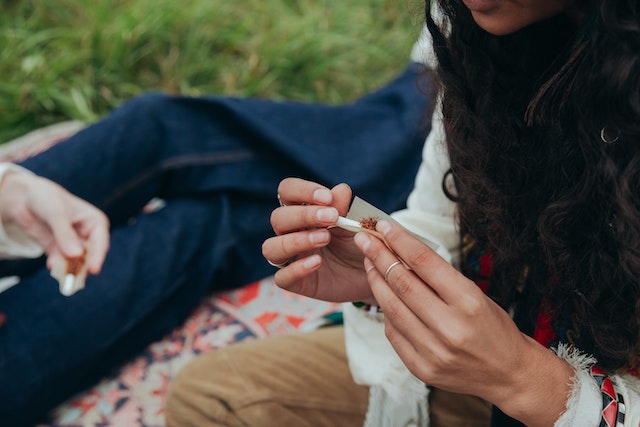How to Have Compassion for Yourself
How to Have Compassion for Yourself
Fri, 18 Mar 2022 03:57:14 +0000
This article originally appeared on:
cathytaughinbaugh.com/how-to-have-compassion-for-yourself/Self-care and compassion are critical pieces of the healing process. We want to take good care of ourselves, yet we also know it can be easier said than done. Making an effort to start down that road can help you to feel better about all aspects of your life.
Here is an excerpt from my new book, The Compassion Antidote on self-compassion:
Self-Compassion
No one would dream of judging someone with diabetes or cancer. Yet judgment happens regularly with substance use. This can have a massive impact on your social and emotional health.
Suppose you feel you or your child is being stigmatized because the people you encounter aren’t comfortable thinking about drug dependence. You may begin to internalize those negative feelings. This can develop into shame and doubts about your good judgment.
Debbie Hampton, author of the article “The Benefits of Self-Compassion and How to Get More,” says, “Not to be confused with self-pity, complacency or arrogance, self-compassion involves acknowledging your own suffering, faults, and mistakes and responding with kindness, caring, and understanding, without any judgment or evaluation. It’s talking to and treating yourself as you would a friend. It’s seeing your troubles and screw-ups as part of being human.”
Many families feel that they did all the right things. They are partnered, employed, and able to provide for their children in every way. They were helpful supports for their children and tried to be the best parents they could be. And yet their child still turned to substances.
Some families struggle with every variety of family issues, yet produce children who are well-adjusted. We all know examples of both.
There are things that parents can do to help prevent substance use. Butif you’re at the point where your child is already using drugs or alcohol, it doesn’t help to go back and beat yourself up for all the things you think you did wrong.
Help Yourself
It would be more helpful if you could develop self-compassion. See if you can treat yourself as your own best friend. This will be an important tool for your long-term mental health, and your success in fighting your child’s battle—and your own.
When you realize that your child is using drugs or alcohol, it often causes stress and anxiety. Rather than judging yourself harshly, try to see yourself as your kindest friends or family members would. Do what you can to stop being self-critical. What would you say to your friend if they were in the same boat? What would you do to help them? How can you take those same efforts of encouragement and support and apply them to yourself?
Self-compassion allows you to feel the pain of your situation without letting it take over your life. Forgive yourself for your past mistakes—learn from them, of course, but treat yourself gently. To do your best to move forward with a sense of peace and well-being.
Your child needs compassion, and so do you. Give yourself radical permission to let go of all the guilt and shame. It allowed me to focus on more helpful, positive things.
Compassion for Yourself
According to Kristin Neff, PhD, author of Self-Compassion: The Proven Power of Being Kind to Yourselfself-compassion entails three core components: self-kindness, recognition of our common humanity, and mindfulness. If we combine these three essential elements—which all happen to be of benefit to parents trying to be more compassionate with themselves and their children—we can learn how to be genuinely self-compassionate. Here are my thoughts on how this can apply to dealing with your child’s substance use.

Be Kind to Yourself
Treating ourselves with kindness is an integral part of self-care. Yet the idea of being kind to ourselves is often overlooked. We are often our own harshest critics, berating ourselves at every turn for our mistakes. Instead, we can learn to be gentle and understanding with ourselves, rather than critical and judgmental.
With all of the stigma and shame attached to substance use, it’s no wonder that we beat ourselves up for all the things we did “wrong” that contributed to our child’s drug or alcohol use. Having a child with drug or alcohol issues puts you in a place where you may feel judged by others. You may also harshly judge yourself. But the more loving and kind you are to yourself, the more confident you will feel, and the wiser your decisions will be during this anxious time.
Treat yourself as your own best friend. Pat yourself on the back for the hard work you are doing to help your child. Remind yourself that you are a kind, responsible parent. Be mindful of your inner critic. Do you criticize yourself for failing because of your child’s issues? We often have had little or no training as parents, and knowing what to do to if our child decides to experiment with drugs or alcohol is a complicated endeavor. It is essential to learn to give yourself a break from time to time.
Be as gentle with yourself as possible.
Begin to notice what you did right when it comes to parenting to balance out any ongoing, negative inner dialogue. Some days you may have nailed your parenting. You were ready with the appropriate dialogue or action that helped your child at the right moment.
Other days you may have felt busy, overwhelmed, or tired. Maybe you didn’t pay enough attention or weren’t dialed in, or you snapped at your child. Know that you’re not alone. We are all just doing the best we can with each situation that arises. Of course, it’s important to strive to be the best parent possible. Every child deserves that.
You don’t have to look far to realize that everyone is struggling with something. You may look at your neighbors and friends and think they have the ideal family, with perfect kids—but that ideal exterior might cover up problems that you aren’t aware of, such as financial issues or health problems. It’s easy, especially on rough days, to fall into self-pity. Many of us have felt that way at certain times. An alternative, which can be challenging, but something to consider, is to ask yourself, “What is my lesson here?”
I have found that when parents suffer with their child’s painful experiences, it can be life-changing. And even though it hurts to feel the pain of your child’s substance use, you can still help your child and be proactive.
The Compassion Antidote is available now where books are sold.
Thank you for reading. I know you have many options on content. Don’t forget to sign up for the Sunday newsletter with information and inspiration to help parents. Sign up now.
All In Solutions Counseling Center is an alcohol and drug treatment network, an alcohol & drug treatment network. We provide outpatient & inpatient addiction treatment programs that are individualized to meet each client's needs. Our specialized programs include:
- Christian recovery
- MAT for opiate addiction
- Art therapy treatment
- Men's drug & alcohol rehab
- Female-only addiction treatment
Our locations include:
How to Have Compassion for Yourself-All In Solutions-All In Solutions - A Solutions Based Behavioral Healthcare Group
from All In Solutions https://ift.tt/gP7Tzp1
via IFTTT

No comments:
Post a Comment